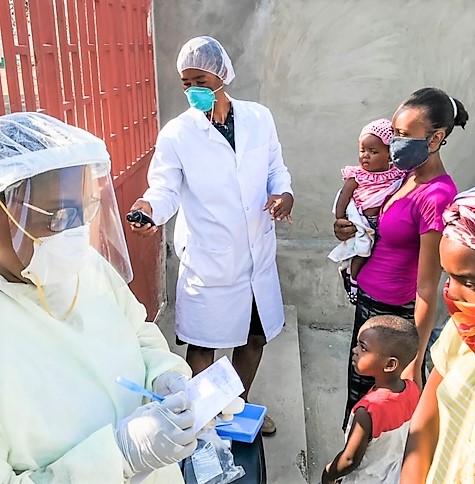When different life events happen there are many resources that we turn to in order to receive more information. We have many news networks, social media platforms, and even the radio. However, there are many remote areas in developing countries that do not have the same resources as we do.
What happens when there is an epidemic outbreak such as the Coronavirus? How do people in these remote areas receive the proper information?
Imagine not having any resources to fully understand what COVID-19 is. Many of our partners are working hard by sending relief packages and educating their partner communities to make sure people are up to date with the current state of this virus.
In Kenya, The 410 Bridge has a creative way to educate their communities while social distancing. Along with their relief packages, The 410 Bridge includes a megaphone for churches to use to be able to speak to people at a safe distance. In villages where residents may have believed this illness was a curse on their community, they are now learning that this is a worldwide pandemic and that there is no shame in getting sick. Leaders are also able to educate the importance of proper sanitary procedures to prevent the spread of the virus.
A lot of our partners in different countries are also helping by creating and distributing posters to educate people living in remote areas who may not have access to a radio or television. Others are also setting up handwashing stations to teach the importance of proper hygiene.
In Haiti, our partner Light from Light describes a different challenge. While the radio may be talking about the Coronavirus, many people do not trust that the information they are receiving is true. While most of the cynicism is found in the cities, there are still some people in the countryside who are skeptical. The staff at Lespwa Timoun clinic is determined to set an example. Many people trust the staff at the clinic and will trust what they have to say about the virus. If the patients see the staff wearing masks, washing their hands regularly, and social distancing, then they might start to believe it is real.
“As I sometimes tell patients, ‘you may not believe what you hear on the radio and that is fine. But if you don’t believe that, believe us. You know we only want the best for you,’” explained Tram Jones, a doctor at Lespwa Timoun clinic.
Jones also stated that they are able to sell face masks that the employees make at cost. They make all patients wash their hands and they take the temperature of each patient before they enter the clinic. “We hope that our example will slowly help turn public opinion to one of belief,” stated Jones.
Whether it’s setting an example, passing out flyers, or distributing megaphones, our partners are hard at work helping to educate their partner communities about COVID-19.
For more information about our partners, please visit here. If you are interested in learning how you can sponsor a child, click here.
Let’s continue to be in prayer for our partners and their staff that are on the ground helping and educating the communities.
Alicia Stever
Sponsorship Program Coordinator
BrightPoint for Children

